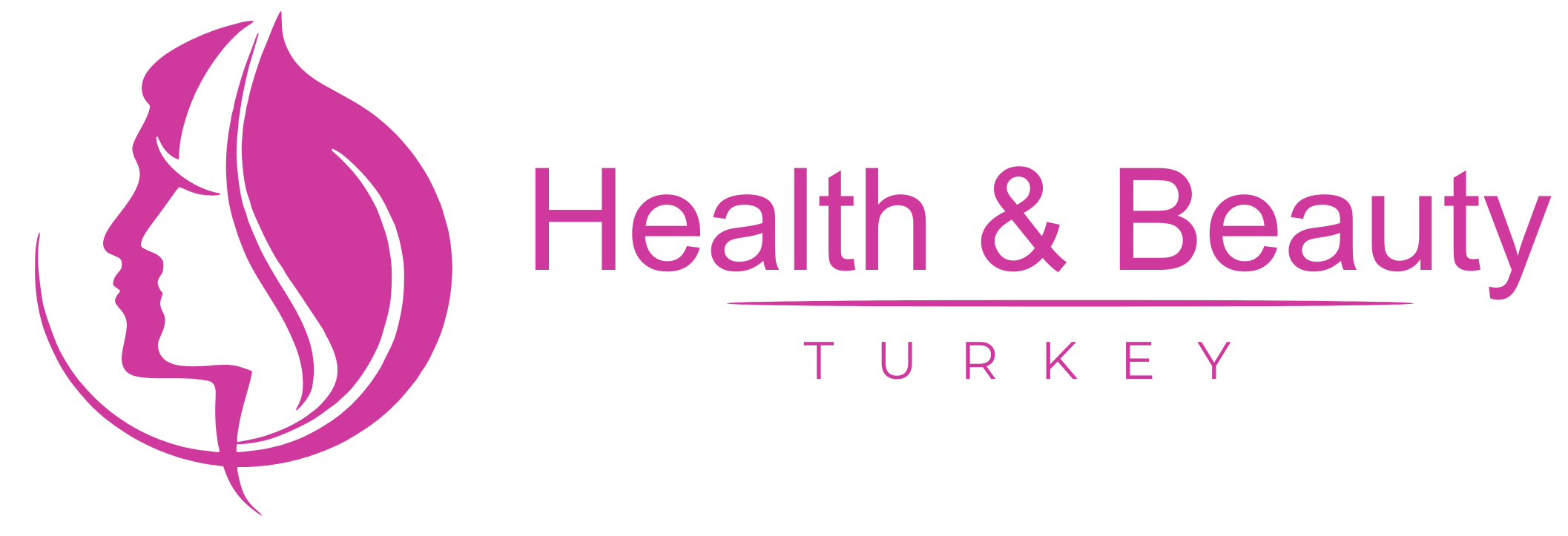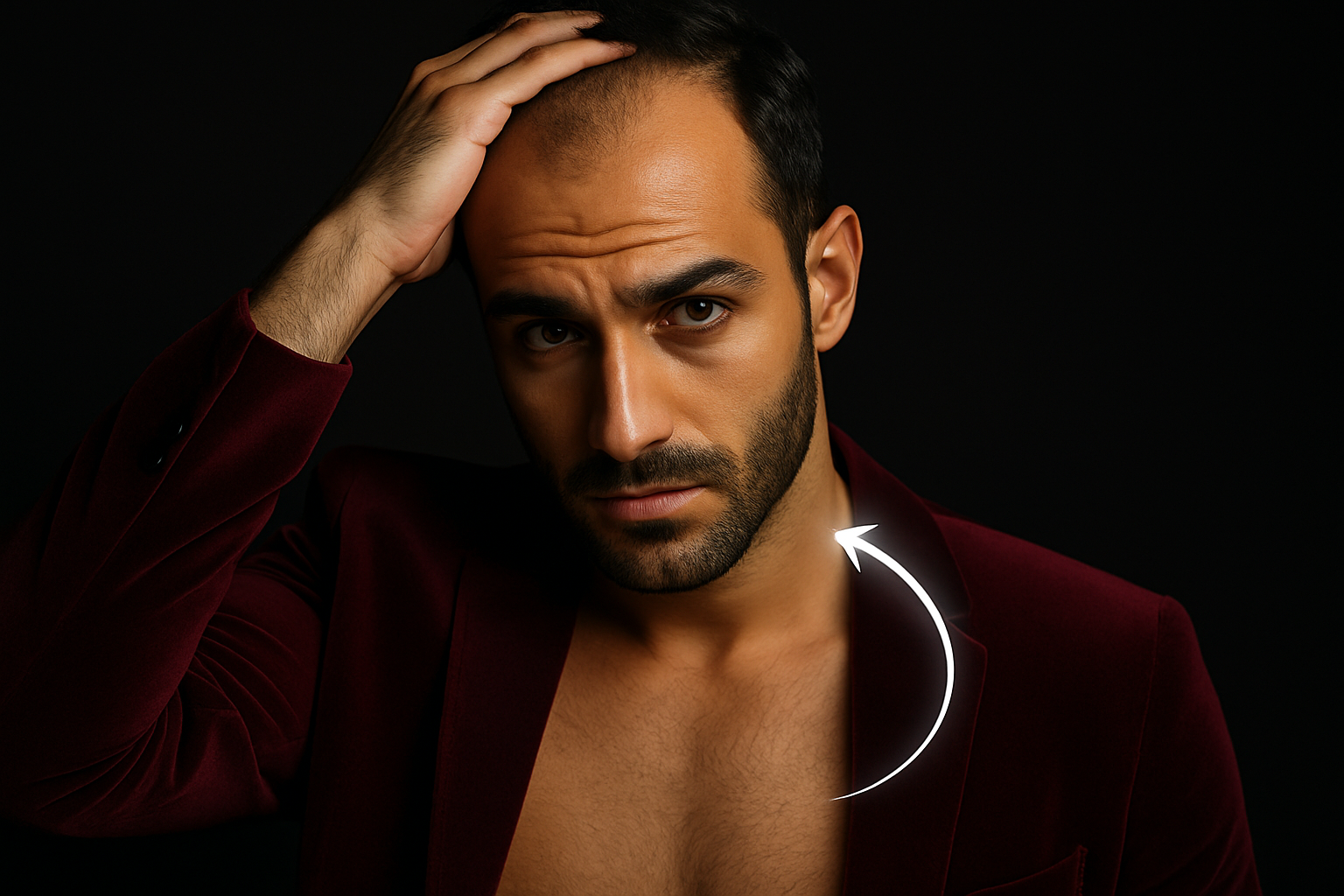Introduction
Hair loss is a common issue that affects millions of people around the world, regardless of age or gender. It is not just a cosmetic problem; it can profoundly impact an individual’s self-confidence and mental health.
As a result, many are seeking effective and permanent solutions to regain their hair and health. Turkey, especially the “Health & Beauty Turkey” center, is witnessing an increasing influx of patients seeking hair loss treatments, thanks to the expertise of its renowned doctors, modern techniques, and distinguished healthcare environment.
In this comprehensive article, we will delve into the depths of the hair loss issue, exploring its multiple causes and presenting the latest available treatment methods, with a focus on what Turkey offers as a leading destination for medical tourism. We will also address potential patient concerns regarding treatment procedures and explain how “Health & Beauty Turkey” assures your safety and comfort through insurance coverage for complications arising from medical tourism.
Medical Background: Understanding Hair Loss
Hair loss, or alopecia, is a term that encompasses the loss of abnormal amounts of hair from the scalp or other body areas. This loss can be temporary or permanent, and it manifests in multiple forms, including progressive thinning of hair, bald patches, or complete loss of hair.
Main Causes of Hair Loss:
-
Genetics (Hereditary Hair Loss):
This is the most common cause and is also known as male or female pattern baldness. It involves genes inherited from parents that affect how hair follicles respond to a hormone called dihydrotestosterone (DHT).
This hormone causes gradual shrinkage of hair follicles, making hair thinner and shorter, eventually stopping follicle production of hair. Hereditary baldness in men usually appears as a receding hairline at the front forming a “V” or “M” shape, followed by thinning at the crown. In women, it often presents as a general thinning of hair, especially at the top of the scalp, while the frontal hairline usually remains intact.
-
Hormonal Changes and Medical Conditions:
- Hormonal Imbalances: Hormonal fluctuations can lead to hair loss. These fluctuations include pregnancy and childbirth, menopause, and polycystic ovary syndrome (PCOS).
- Thyroid Diseases: Both hyperthyroidism and hypothyroidism can adversely affect the hair growth cycle and cause hair loss.
- Autoimmune Diseases: Such as alopecia areata, where the immune system mistakenly attacks hair follicles, resulting in hair loss in round patches.
- Fungal Infections of the Scalp: Such as ringworm, can cause scaling, itching, and hair loss in the affected areas.
- Other Skin Conditions: Such as psoriasis or severe seborrheic dermatitis on the scalp can lead to temporary hair loss.
-
Medications and Medical Treatments:
- Cancer Treatments: Chemotherapy and radiation therapy are known causes of hair loss, and this loss is often temporary, with hair regrowth occurring after treatment completion.
- Other Medications: Some medications used to treat conditions such as high blood pressure, depression, heart problems, and arthritis can cause hair loss as a side effect.
- Dietary Supplements: In rare cases, some dietary supplements or high doses of certain vitamins may lead to hair loss.
-
Physical or Psychological Stress:
- Severe Physical Stress: After major surgery, or experiencing a severe fever, or losing a large amount of weight, a person may experience a type of hair loss called “telogen effluvium”.
- Chronic Psychological Stress: Persistent stress and anxiety can exacerbate hair loss, particularly if the person has a genetic predisposition.
-
Nutrition and Vitamin/Mineral Deficiencies:
- Iron Deficiency: Iron-deficiency anemia is a common cause of hair loss in women.
- Protein Deficiency: Hair is primarily composed of keratin protein; thus, a lack of protein in the diet can affect hair health.
- Deficiencies in Zinc, Selenium, and Vitamins such as Biotin and Vitamin D: These nutrients play vital roles in hair growth.
-
Hair Care and Tight Hairstyles:
- Tight Hairstyles: Continuous pulling of hair, such as very tight ponytails, or tight braids, or using tight hairbands, can cause a type of hair loss known as “traction alopecia”.
- Harsh Chemical Treatments: Overuse of dyes, relaxers, and straightening products can weaken hair follicles and cause damage and loss.
- Rough Handling of Hair: Combing wet hair or using heated styling tools excessively can lead to hair breakage.
Risk Factors for Hair Loss:
- Age: With aging, hair loss becomes naturally more common.
- Gender: Men are more susceptible to hereditary baldness compared to women.
- Family History: A family history of hair loss increases the likelihood of occurrence.
- Health Condition: Chronic diseases and various medical conditions.
- Stress: Exposure to significant psychological or physical stress.
- Diet: An unbalanced diet lacking essential nutrients.
Symptoms of Hair Loss:
Hair loss is typically gradual, and the following symptoms can be observed:
- General thinning of hair.
- Receding hairline at the front or at the temples.
- Appearance of round bald patches on the scalp.
- Increased amounts of hair falling on the pillow, or in the comb, or in the bathtub.
- Itching or irritation of the scalp (in some cases).
Diagnosing Hair Loss: The Path to Correct Treatment
To determine the cause of hair loss and develop an effective treatment plan, doctors rely on several diagnostic methods:
- Medical History and Physical Exam: The doctor begins by asking the patient about their health history, hair loss pattern, diet, medications used, and family history. This is followed by a thorough examination of the scalp and hair to determine the pattern and extent of loss.
- Hair Pull Test: The doctor gently pulls a small amount of hair to assess how many hairs fall out easily. This can help differentiate between disruptive hair loss (like telogen effluvium) and other types.
- Blood Tests: The doctor may request blood tests to check hormone levels (such as male hormones and thyroid hormones), iron levels (ferritin), other vitamins and minerals, and to detect autoimmune diseases.
- Scalp Biopsy: In cases of unusual or complicated hair loss, the doctor may take a small sample of the scalp for microscopic examination. This helps diagnose hair follicle diseases, infections, and causes of hair loss that may not show up in blood tests.
- Microscopic Hair Analysis: Examining hair under a microscope helps assess hair damage and determine whether loss is due to breakage from the shaft or from the follicle.
Recent Developments in Understanding Hair Loss:
Research continues to deepen the understanding of hair loss causes, yielding promising results:
- Advances in Understanding the Role of Stem Cells: Research suggests that the role of stem cells in hair follicle regeneration may be key to new treatments.
- Development of Targeted Treatments: Treatments are being developed that focus on specific molecular pathways associated with hair growth, reducing potential side effects.
- Biotechnology: The use of techniques such as platelet-rich plasma (PRP) injections and stem cells has shown positive results in stimulating hair growth.
Ideal Candidates for Hair Loss Treatment
Determining the ideal candidate for treatment depends on the type of hair loss, its cause, and the patient’s overall health condition.
Suitable Candidates:
- Individuals Suffering from Hereditary Baldness: Both men and women seeking solutions for thinning or lost hair due to genetics.
- People Experiencing Hair Loss Due to Treatable Factors: Such as vitamin deficiencies, thyroid problems, or stress.
- Patients with Realistic Expectations: Understanding that treatment may take time and results may vary from person to person.
- Those in Good Health: Who do not have chronic diseases that might compromise treatment.
- In the Case of Hair Transplant: Individuals with good donor areas (thick hair at the back and sides of the head) can donate follicles to affected areas.
Who Might Not Be an Ideal Candidate?
- Pregnant or Breastfeeding Women: It is advisable to wait until breastfeeding is completed due to hormonal changes.
- Individuals with Unstable Health Conditions: Require stability before any therapeutic procedures.
- Those Experiencing Hair Loss Due to Active Medications: May need to consult the physician prescribing those medications first.
- People with Unrealistic Expectations: For example, expecting full hair regrowth in areas that have been bald for a very long time.
- In the Case of Hair Transplant: Individuals suffering from active skin diseases on the scalp or having very weak donor areas.
Preparation for Travel and Treatment in Turkey
To ensure a smooth and fruitful treatment experience in Turkey, patients should take some important preparatory steps:
Before Traveling:
- Initial Consultation: Conduct a comprehensive consultation with the “Health & Beauty Turkey” team. Our doctors will evaluate your condition, discuss available treatment options, and answer all your questions. This consultation can be conducted remotely via video or photos.
- Medical Tests: You may be asked to undergo some basic medical tests in your country before traveling, such as comprehensive blood tests, coagulation tests, and infectious disease screenings. You will be informed about these requirements in detail.
- Obtaining a Visa (if necessary): Ensure you are aware of the visa requirements for Turkey based on your nationality, and submit your application in a timely manner.
- Travel and Accommodation Planning: The “Health & Beauty Turkey” team will assist you in travel arrangements, including flight booking, comfortable hotel accommodation, and transportation to and from the airport.
- Discontinuing Certain Medications: Your doctor may ask you to stop taking certain medications, such as blood thinners (like aspirin) or some dietary supplements, for a few days before the procedure.
Health and Lifestyle Tips:
- Follow a Healthy Diet: Focus on consuming foods rich in proteins, vitamins (especially B vitamins, vitamin D, and biotin), and minerals (iron, zinc, selenium).
- Get Enough Sleep: Good sleep is essential for overall body health, including hair health.
- Manage Stress: Practice relaxation techniques such as yoga, meditation, or deep breathing.
- Avoid Smoking: Smoking negatively impacts circulation, including blood flow to the scalp, hindering hair growth.
- Reduce Harsh Hair Treatments: Minimize the use of hot styling tools, dyes, and straighteners, and avoid tight hairstyles.
Before the Procedure: Exams and Final Consultation
Upon arriving in Turkey, direct preparations for the treatment procedure begin.
- Final Consultation with the Doctor: You will meet with the doctor for a comprehensive scalp examination, identifying the areas to be transplanted, determining the number of follicles needed, and clarifying the detailed treatment plan.
- Medical Preparations: Some additional medical tests may be conducted at the clinic to ensure your health fitness for the procedure.
- Condition Imaging: Detailed photos of the scalp will be taken before the procedure to document the condition and compare with future results.
- Discussing Anesthesia Options: Available anesthesia options will be explained, and local anesthesia is often used to ensure patient comfort.
During the Procedure: Modern Techniques for Hair Transplantation
Turkey relies on the latest techniques for hair transplantation, characterized by precision and natural results. The most well-known of these techniques are:
FUE Technique (Follicular Unit Extraction):
- Stage 1: Follicle Harvesting: Hair follicles are individually harvested from the donor area (usually the back of the head) using a very precise tool. This process does not leave noticeable linear scars, only tiny spots that are hardly visible.
- Stage 2: Preparing the Follicles: The harvested follicles are examined under a microscope by a specialized team and divided into follicular units.
- Stage 3: Creating Channels: The doctor creates very small incisions in the recipient area (the area suffering from loss) using special needles. The angle, depth, and direction of the incisions are carefully determined to ensure a natural appearance.
- Stage 4: Implanting the Follicles: Each follicular unit is carefully implanted into the created incisions. The follicles are strategically distributed to achieve natural density.
DHI Technique (Direct Hair Implantation):
DHI is an evolution of the FUE technique. In this technique, a special tool called “Choi Pen” is used.
The Choi Pen combines the steps of channel creation and follicle implantation into one step. The device directly implants the follicle into the scalp at the required angle, depth, and density. DHI is characterized by high accuracy, reduced shock to the follicles, faster healing time, and the possibility of dense transplantation in a small area.
Anesthesia:
Local anesthesia is often used, which involves a light injection into the scalp to ensure no pain is felt during the process. Additional techniques such as intravenous sedation may be used to aid relaxation.
After the Procedure: Immediate Care and Follow-up
Once the procedure is complete, the recovery period and care necessary to ensure the best results commence.
Immediate Care:
- Initial Rest: After the procedure, you will be taken to a comfortable room to rest. A light dressing may be placed on the donor and recipient areas.
- Care Instructions: The medical team will provide you with detailed instructions for scalp care, including how to wash your hair, the medications to take (such as pain relievers or antibiotics), and activities to avoid.
- Medical Follow-up: A medical visit may be required to follow up on the condition of the scalp after one or two days, especially in the case of hair transplantation.
Recovery Period and Expected Results:
- The First Days: You may experience some swelling, redness, or numbness in the scalp. Avoid touching or rubbing the transplanted areas.
- The First Week: The shedding of transplanted hair (Shock Loss) begins, which is very natural. The implanted hair strands may fall out during the first few weeks, while the follicles under the skin remain intact.
- From Month Two to Four: New hair strands begin to grow, initially thin.
- From Month Four to Six: Hair growth increases, and the strands become thicker and denser.
- From Month Eight to Twelve: Approximately 80% of the final results are achieved.
- After Eighteen Months: The final results are complete, and the hair appears with density and a natural look.
Note: The speed of recovery and results vary from person to person.
Modern and Advanced Treatment Options in Turkey
Hair loss treatment options in Turkey are not limited to hair transplantation; they include a wide range of innovative techniques suitable for various conditions:
-
Low-Level Laser Therapy (LLLT):
This treatment uses special laser devices to target specific light at the scalp, stimulating blood circulation in the follicles and promoting hair growth. It is considered safe and painless and can be used at home or in the clinic.
-
Platelet-Rich Plasma (PRP) Injections:
- How It Works: A blood sample is drawn from the patient, and the platelet-rich plasma is separated from the other blood components using a centrifuge. This plasma contains powerful growth factors.
- Procedure: The concentrated plasma is injected into the scalp, stimulating weak hair follicles and promoting thicker and new hair growth.
- Benefits: A natural and safe treatment, stimulates cell regeneration and enhances scalp health.
-
Stem Cell Injections:
This technique relies on using stem cells extracted from the patient’s fat or bone marrow.
When injected into the scalp, these cells can develop into hair follicle cells, enhancing new hair growth and assisting in rebuilding damaged tissues. This technique is highly promising in treating advanced baldness.
-
Acoustic Wave Therapy (AWT):
This therapy uses sound pulses to stimulate circulation and metabolism in the scalp.
It can help renew tissues, improve nutrient supply to hair follicles, and enhance hair growth.
-
Topical and Oral Medications:
- Minoxidil: A topical medication available without a prescription, helps stimulate hair growth in some individuals.
- Finasteride: An oral drug (often prescribed for men), works by preventing the conversion of testosterone into dihydrotestosterone (DHT), the hormone responsible for hereditary baldness.
- Spironolactone: A doctor may prescribe this medication for women experiencing hormone-related hair loss.
Unique Advantages of Treatment at “Health & Beauty Turkey”:
- Expertise of Doctors: We have a selection of highly experienced dermatologists and cosmetic surgeons specializing in hair loss treatment, who stay updated with the latest global techniques.
- Advanced Techniques: We offer the latest techniques in hair transplantation and non-surgical treatments, ensuring the best possible results.
- Comprehensive Approach: We present a comprehensive treatment plan that includes accurate diagnosis, personalized treatment, and regular follow-ups.
- Comprehensive Patient Care: We prioritize providing a comfortable and smooth experience for international patients, starting from their airport reception, providing accommodation, and offering translation services, up to follow-up care after their return.
- Commitment to Safety: We adhere to the highest safety and quality standards in all our procedures.
Reassuring Patients: Insurance Coverage for Complications of Medical Tourism
We at “Health & Beauty Turkey” understand that considering a medical procedure, especially in a foreign country, can raise some concerns about potential complications. To provide maximum safety and reassurance to our patients, we offer Insurance Coverage for Complications from Medical Tourism as an essential part of our services.
What Does the Insurance Cover?
- Treatment of Medical Complications: This insurance covers the costs of treatment and care needed in case of any medical complications requiring hospitalization after the procedure.
- Coverage of Medical Expenses: The insurance includes costs associated with the required treatment, such as medications, examinations, and hospitalization.
- Duration of Coverage: The insurance remains valid for six months starting from the date of your treatment.
- Coverage for Travel and Accommodation Costs in Case of Revision Surgery: If the medical condition requires a revision surgery, the insurance also covers the travel and accommodation costs necessary to complete this treatment in Turkey.
- Coverage Conditions: The insurance is valid only at clinics and hospitals accredited by the Turkish Ministry of Health, with which we are committed to working.
This insurance is an additional step to ensure that our patients feel secure and completely confident during their treatment journey with us, knowing that we cover their needs even in unexpected situations.
Practical Tips for Patients Traveling for Treatment in Turkey
To make your treatment journey in Turkey more comfortable and effective, here are some practical tips:
- Advance Planning: Start planning your journey well before the procedure date. Contact “Health & Beauty Turkey” to ask any inquiries.
- Prepare Documents: Ensure your passport and visa (if needed) are valid. Keep copies of all important medical documents.
- Essential Medication Package: Bring any personal medications you regularly take, along with a prescription if possible.
- Comfortable Clothing: Choose comfortable and easy-to-wear and remove clothes, especially on the first recovery days.
- Comfortable Shoes: You will need to walk, so opt for comfortable shoes.
- Communication: Learning some basic Turkish phrases might be helpful, but don’t worry, our team provides translation services.
- Relaxation: Allocate time to relax and enjoy the beauty of Turkey if your time and doctor permit.
- Diet: Follow your doctor’s guidelines regarding food and drink, especially before and after the procedure.
- Adhere to Post-Operative Instructions: This is the most crucial advice to ensure optimal healing and desired results.
Mental Preparation:
- Expect Challenges: Be prepared that the recovery period may involve some temporary discomfort or changes in appearance.
- Seek Support: Talk to your family and friends about your plans and seek their support.
- Patience: Remember that the final results of hair loss treatment, especially hair transplantation, take time. Being patient is essential.
- Positive Thinking: Focus on the benefits you will gain and your new life with healthy hair.
Cost of Hair Loss Treatment in Turkey
The cost of hair loss treatment in Turkey varies significantly based on several factors, the most important being:
- Type of Treatment: Prices for hair transplantation significantly differ from those of PRP injections or laser treatment.
- Hair Transplant Technique: Techniques like DHI may be slightly more expensive than standard FUE.
- Number of Implanted Follicles: In the case of hair transplantation, the more follicles, the higher the cost.
- Doctor and Clinic Expertise: Reputable clinics and highly experienced doctors may have higher fees.
- Package Offered: Some packages may include accommodation, transportation, and follow-up, affecting the overall cost.
Overall, prices for hair transplantation in Turkey for most patients range from 1,500 Euros to 4,000 Euros (or equivalent in US dollars or Turkish lira).
For treatments like PRP injections, the cost of a single session may range between 100 Euros and 250 Euros.
Important Note: These prices are estimated averages and may vary. For an accurate and personalized estimate for your case, we strongly advise contacting “Health & Beauty Turkey” for a free assessment.
Why Choose “Health & Beauty Turkey” for Your Treatment Journey?
“Health & Beauty Turkey” is not just a medical center; it is your trusted partner in your journey toward regaining your self-confidence and health. We are distinguished by the following:
- Renowned Doctors’ Expertise: Our doctors hold years of experience and deep knowledge in their specialties and are committed to providing the best possible care.
- Latest Technologies and Equipment: We continuously invest in the latest technologies and equipment to ensure effective and safe treatments.
- Comprehensive Service Package: We provide a comprehensive service covering all aspects of your treatment journey, from the moment you arrive until your departure, as well as post-return follow-up.
- Reception and Transportation: You will be greeted at the airport and transported to your hotel and then to the clinic.
- Comfortable Accommodation: We provide accommodation in high-quality hotels.
- Translation Services: We ensure ease of communication by providing immediate translators.
- Medical Follow-up: We offer careful follow-up on your health condition before and after the procedure.
- Focus on Your Safety and Comfort: Your safety and comfort are our top priorities, reflected in our commitment to the highest health standards and providing comprehensive medical insurance.
- Transparency and Communication: We are committed to complete transparency in all aspects of treatment, including costs and expected outcomes.
Hair loss is not a final verdict; it is a condition that can be effectively addressed through modern techniques and specialized medical expertise. Turkey, via its leading centers such as “Health & Beauty Turkey,” offers an ideal solution for those seeking to restore their hair and scalp health while ensuring a safe and comfortable treatment experience.
Turkey has now become a trusted global destination for medical tourism, thanks to its skilled doctors, advanced technologies, premium health infrastructure, and competitive prices. With our specialized coverage for complications from medical tourism, we enhance your sense of security, affirming our commitment to providing the highest levels of care.
Are you ready to take the first step toward restoring healthy and thick hair?
Do not hesitate to reach out to our medical representative at “Health & Beauty Turkey” today. We will be happy to provide a free consultation, evaluate your case, answer all your questions, and help you plan your optimal treatment journey.
Contact us now and let us commence your journey toward confidence and beauty!




